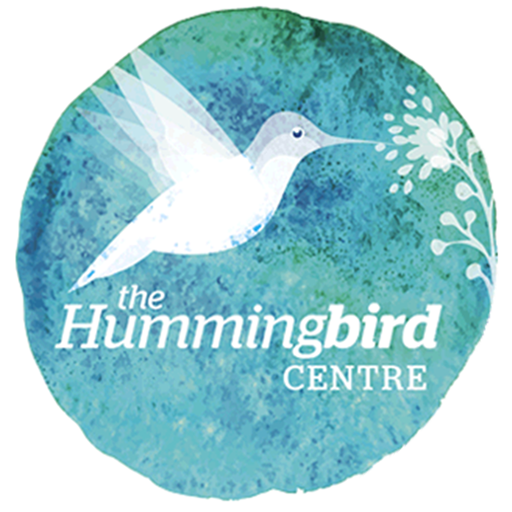Understanding PTSD
Post-Traumatic Stress Disorder (PTSD) can occur after experiencing or witnessing distressing or life-threatening events. These might include accidents, abuse, violence, or other traumatic experiences. PTSD can also develop after repeatedly hearing or seeing distressing details of traumatic events.
People living with PTSD may have strong memories, nightmares, or feel constantly on edge. These experiences can affect sleep, relationships, and day-to-day life. Everyone’s experience of trauma is different.
At The Hummingbird Centre, our clinicians provide gentle, trauma-informed PTSD therapy in Newcastle and across the Hunter region. We aim to create a safe, supportive environment where you can explore your experiences at your own pace. Therapy may help you better understand symptoms, build coping skills, and reconnect with a sense of safety and control.

What PTSD May Feel Like
PTSD can look and feel different for everyone. Some common experiences include:
Flashbacks or vivid memories of the event
Nightmares or difficulty sleeping
Feeling tense, jumpy, or easily startled
Avoiding reminders of what happened
Feeling detached or disconnected from others
Strong emotions such as fear, guilt, anger, or shame
Difficulty concentrating or staying present
Some people may also notice signs of anxiety or depression. These symptoms are not a sign of weakness – they are the body’s natural response to overwhelming stress.

How PTSD Therapy Can Help
At The Hummingbird Centre, our trauma therapists use evidence-based approaches designed to support recovery and improve wellbeing. Therapy is always collaborative and led by your goals.
Treatments may include:
Eye Movement Desensitisation and Reprocessing (EMDR) – helps the brain reprocess traumatic memories in a safe and manageable way.
Trauma-Focused Cognitive Behaviour Therapy (TF-CBT) – focuses on building coping strategies and gradually addressing triggers.
Neurofeedback – supports emotional regulation and self-awareness.
Our clinicians will talk with you about what approach feels right. Some clients choose to combine methods such as EMDR or Neurofeedback as part of their recovery journey.
Therapy may help reduce distress, increase calm, and support everyday functioning. It does not erase what happened – it helps you move forward in ways that feel safe and empowering.
Our Locations & Telehealth
The Hummingbird Centre offers trauma-informed PTSD therapy and trauma counselling across Newcastle, Maitland, Broadmeadow, Warners Bay, and Lake Macquarie, with telehealth sessions available across Australia.
Whether you visit one of our local clinics or connect online, you’ll receive the same compassionate, confidential care from our experienced team. Each space – whether in-person or online – is designed to feel safe, calm, and welcoming.

Getting Started & Referrals
You can contact The Hummingbird Centre directly to book your first appointment. If you see your GP, they can prepare a Mental Health Care Plan, which may give you access to Medicare rebates for eligible sessions.
We also provide therapy under a range of referral and funding options, including:
NDIS (self-managed or plan-managed)
WorkCover / SIRA (State Insurance Regulatory Authority) referrals
Private health insurance, including BUPA and other major funds
Our admin team can help you understand fees, rebates, and payment options before you start.
FAQs about PTSD Therapy
What is PTSD?
PTSD is a mental health condition that may develop after experiencing or witnessing trauma. It can involve strong memories, nightmares, or feeling on edge even long after the event.
Who provides PTSD therapy at The Hummingbird Centre?
Therapy is provided by qualified psychologists and mental health clinicians who use trauma-informed and neuroaffirming approaches.
What does PTSD therapy involve?
Therapy may include EMDR, TF-CBT, Schema Therapy, or skills for sleep, grounding, and self-regulation. We set goals together and review progress at your pace.
Do you offer PTSD therapy online?
Yes. We offer secure telehealth as well as in-person sessions in Newcastle, Broadmeadow, Maitland, Warners Bay, and Lake Macquarie.
How long is a session and how often do I attend?
Sessions usually last about 50 minutes. Some people come weekly at first, then less often as they feel more confident.
Do I need a referral?
You can contact us directly, or your GP can provide a referral and Mental Health Care Plan to access Medicare rebates.
Is my information confidential?
Yes. We follow Australian privacy laws and professional ethics. Confidentiality and its limits are discussed clearly before therapy begins.
Do you support children, teens, and adults?
Yes. Our clinicians work with children, young people, and adults, and can include families or carers when helpful and agreed upon.


